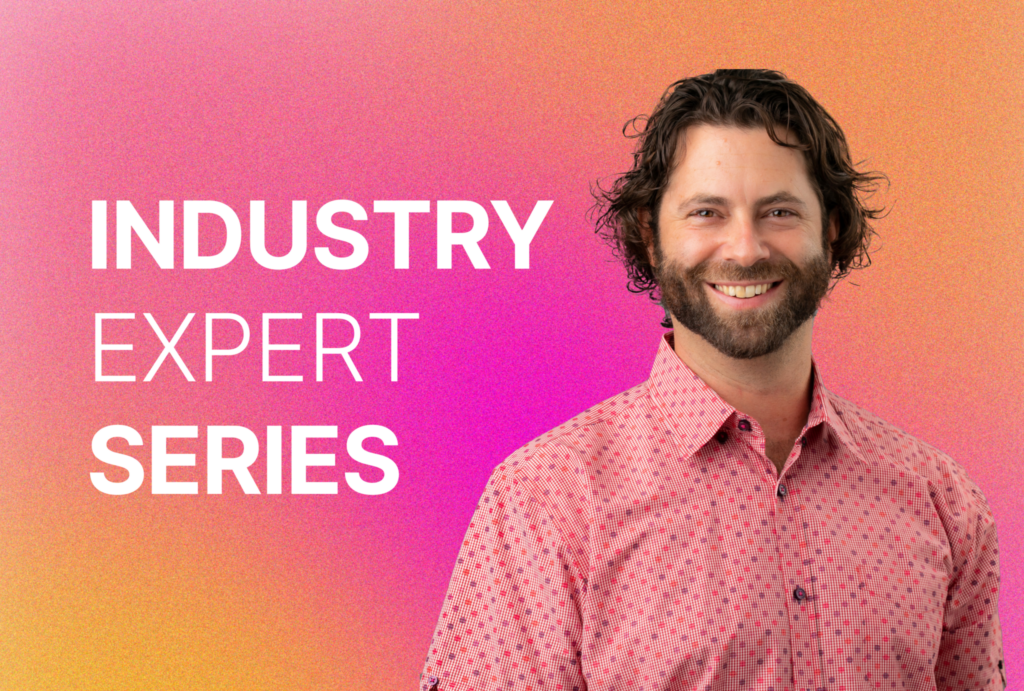A little bit about Elan:
Elan M. Sudberg is CEO of Alkemist Labs, a passionately committed contract testing laboratory specializing in plant identity, potency, and purity testing to the Food & Beverage, Nutraceutical, and Cosmeceutical Industries. He holds a degree in chemistry from California State University Long Beach, and is on the American Herbal Products Association board of trustees.This interview has been edited for brevity and clarity.
Trackmind: If I want to start a brand tomorrow, like a supplement company, are there any common misconceptions floating around right now that I should be aware of?
Elan: Unfortunately, trust, I think, is a misconception. We live in a very strange world now. We have for a long time. It’s gotten weirder, I think. That saying of trust but verify has been around for a long time. Well, I don’t like that one. I like to verify then trust. So, the misconception that you trust a brand to sell you the right material is fading, unfortunately. And really, the need to prove it before you actually trust it is more important for liability. We get a lot of these customers that said, “Well, we’ve always bought from them. How could it be wrong?”. It sounds like a sad place to live and it’s only for my skeptical work life but it is. We don’t trust. We verify.
Trackmind: Yeah, I can understand that, now that I think about it. I think I would prefer verified over trusted. I was reading about the potency testing that you have on your website and when it comes to that, do you work with formulation experts? Just because when it comes to cannabis and hemp and stuff, I don’t consume any CBD products yet cause it is too strong for me. But the other day, I was reading an article about how most of the beverages that are coming out with CBD, CBD beverages, they’re too strong for a beginner like me or someone else who’s not used to it. So, do you work with formulation experts to figure that out?
Elan: We do raw ingredient testing, but there’s also finished product testing. So, as an example, I can test the hemp to make sure it has low or no THC. When you take that same material I just tested and then you process it and eventually put it into a beverage, you no longer have plants. You have chemicals from plants. For example, every day you might make tea or coffee, that’s an extract, it’s a hot water extract of a plant, bean or a leaf and you get a green liquid or a brown liquid. If you dry those down, you have brown powder, or green powder. And then you put that into your beverage to hydrate it up. The second you combine that hemp ingredient, actually the second you extract the hemp ingredient to get it from the flower, it’s now changed and a new method is necessary.
You take that extracted form and put it into other ingredients and then eventually the beverage, you have a wild, wild product that is not the same as the original. The fact is good companies would actually test the finished product with a lab like ours. It would develop a method specific for the finished products, approaching it from the standpoint of what does it look like if we throw the regular hemp method at it and now what do we do to get the hemp stuff to show up? Where I’m going with this is, ultimately if you have a poor quality product run by poor quality labs, you might miss the fact that THC is in there and did seep all the way through your beverage. And here you are, someone who has to be somewhat sensitive.
Trackmind: We’re seeing that the climate crisis is getting worse. From a botanical perspective, have you seen a big impact of climate change on the plants that you test? Because you compare it to samples, I think your website says something like 20, a lifespan of 20 years. So have you seen a difference between what these plants were 20 years ago and what they are today?
Elan: As a chemist, I understand numbers sometimes better than people who haven’t taken heavy math or chemistry. And the fact is, we’ve been on this earth for just a little tiny piece of time. And so, to answer your question, have I experienced anything in our testing for 26 years, which is a long time. It’s a quarter century. It’s more than half of my life. I’m 43. I have not experienced any data change in the quality of St. John’s Wort or Rhodiola as a result of anything. Its seasonality, you can plant the same seed in your backyard and in my backyard they’ll grow differently. So, there’s that but in my very short span, which is an eternity to me of 26 years, the answer is no.
Trackmind: But not just climate change, but also the pollution that we’re seeing today. So, a lot of soil pollution, water pollution as well. Is that impacting the ingredients?
Elan: Well, yeah. That’s definitely impacting. What I think is more frightening is the soil quality. My point earlier was that the air can change pretty quickly and recover. The plants are there eating the stuff up nonstop. We just give it a break and it clears up. Soil quality is something that we’ve been drawing from for years and years and years. And there’s a lot of really horrible agricultural processes that just simply deplete the soil and with no intent to make it healthy again. And so there’s this really big movement of regenerative agriculture, which is a very old movement, but it’s been popularized and branded again by two brands in our industry. And they’re doing a great job to show the case that when you have regenerative agriculture, one, you have a healthier longevity of the soil, but the products are actually more nutrient dense. So, a tomato today is, I don’t know the statistics, but half is nutrient dense as a tomato from when we were kids.
That’s because the soil is just basically nothing’s left. And so, when you work to regenerate soil, you could have more high quality products, the soil of plants and the fungi. And then in turn, the THC quantity in cannabis has gone up through the roof since our parents might have smoked it. And that’s because of the quality and all the fine tuning of the ingredients. So we could absolutely change the quality of plants and fungi through the input of soil. And regenerative agriculture does an amazing job on that. Again, that’s another thing we’re doing as an industry to fight this climate change, the creeping that’s happening. And I think that’s probably the most we can do at this moment to really have a quick impact on the quality of ingredients.
Trackmind: It’s good to know that the industry is taking these stances to find solutions. What’s the future for Alkemist Labs? What is there, in terms of the services that you offer? Is there any potential for growth? Expansion basically, not growth, expansion into other services?
Elan: We’re a tiny little speedboat in a fairly small pond with Ocean Liners. So our competitors are multi-billion dollar multi tens of thousand employee companies who test everything from aerospace, textiles to sardines to camomile. We are focused on plants and fungi. Someday we might branch off to vitamins and macronutrients, or micronutrients and proteins, things like that. But right now we’re the plant and mushroom guys and we’re happy to stay there. Our expansion efforts really exist in consumer awareness as, one, we’re working with our best clients and brands to suggest, promote, and really push that they share their results with the consumer level. And so, now we actually have a certificate of approval or sealed approval that will live on bottles. So, the future goal of Alkemist long term is that you’ll actually see us as more of a household brand, sort of the good housekeeping of plants and fungus for products.
My goal is that eventually people choose brands that have our seal of approval on it. The other focus we’re doing outside of this industry is the psychedelic plants and fungus and wellness around that. Because that’s a whole movement that’s been around for thousands of years that has now been repopulated, popularized and is moving really fast. We are one of the rarer labs to actually have the federal legal ability to test all of those compounds and plants. So we’re trying to work with some of the best brands in that field. It’s a whole interesting subject, itself.
And it’s something that you go back to when mice are given the option to take psychedelics or not, they take it once and they say, “No thanks,” to that again. And they move on to the placebo because it’s not a very abusable scenario. No one wants to have a crazy trip too many times.
And last but not the least is our own expansion into this industry. As I mentioned, there’s other services that we don’t provide. We’re very small, we just have to be careful about which way we grow. And I compete with companies who have a hundred of the same instruments that I have one of. So for us to jump into that game is a challenge and expensive and generally a loss for a while.
So slowly but surely, we’re listening to our clients and seeing what they need us to do. The fact is they don’t like using the labs that they have access to. The big box lab experience is not as terrific. These big labs buy other little labs and other labs and you never really know where you’re going and who to talk to and when your results will be ready and amazing quality results. I will never contest that. But the experience is less than desirable. And we offer that sort of really boutique-y, we know our customers, I know their kids, we hug them. We’re at that level with our clientele. And so moving into other avenues of our industry is a slow growth plan for us, for sure.
Trackmind: That’s good. That’s nice to hear. And the last question, what advice do you have for the audience based on good practices that they should be aware of when starting out?
Elan: I have a good friend, Scott Steinford, a mentor and sort of a “work dad” in my company. He has this phrase, I’m trying not to butcher it, that “transparency is the vehicle for which trust is communicated”. So I’ll say it again. Transparency is the vehicle for which trust is communicated. You can’t tell people to trust you. That never works. When someone says, “Trust me,” that means don’t trust them. And our industry, as I mentioned, we can’t say how good our products work, right? So what are our value propositions? It’s good marketing, but you have to be careful. And transparency is the vehicle for which trust is communicated. So when you give the consumers an option to have full transparency in the brand, and I’m not talking about a cute label or a bottle that’s clear, you can see the pills, but there’s actually no transparency beside.
Some of those brands, there’s no transparency behind the actual quality. It’s all facade, the bottle’s transparent, that’s really cute. Next step is actually showing the results. And if they’re listening, what I’m talking about, major brands are doing this cute idea of transparency. But the fact is if you are a good company and you’re doing the right testing, there’s nothing to hide. And so, might as well share every bit and piece of every ingredient and anything that went into it, including lab results.
And it doesn’t matter if the consumers don’t get it, the fact that they have access to it makes them feel more confident in a purchasing position and they’ll come back. And if again, only the good company starts to have that, so their quality is there. So they’ll come back for repeat sales because the quality is there. They’ll have the impact of the product they want, but also the fact that it feels like nothing can be wrong with this product because I can see every bit of it; from the lab all the way to the fields, who grew it, how they grew it, who tested it, what the test results are, and then add some other things of how good the company is with social justice and other really important aspects of the current time. You’ve got a winning brand and something that no one could compete with. And I think that’s the secret sauce that we’ll see soon, is transparency. It’s going to seep to the consumers and be a standard.
Trackmind: That’s good to hear. That’s really good advice. Thank you.
Enjoying our interview series so far? Check out our interviews with other founders. Follow us on Instagram and LinkedIn to stay connected and see more stories of incredible industry experts like Elan Sudberg.



